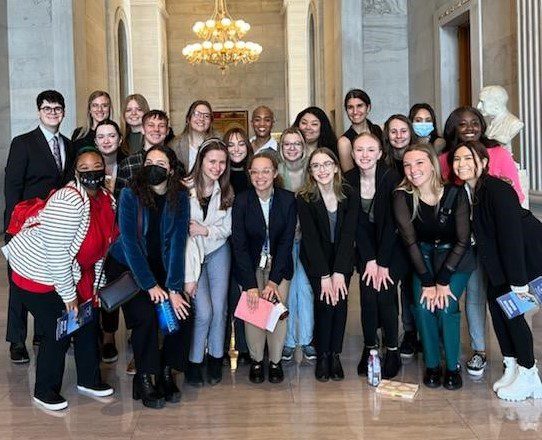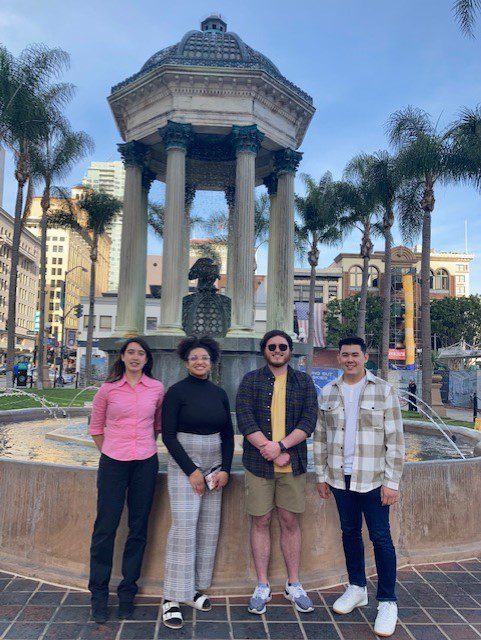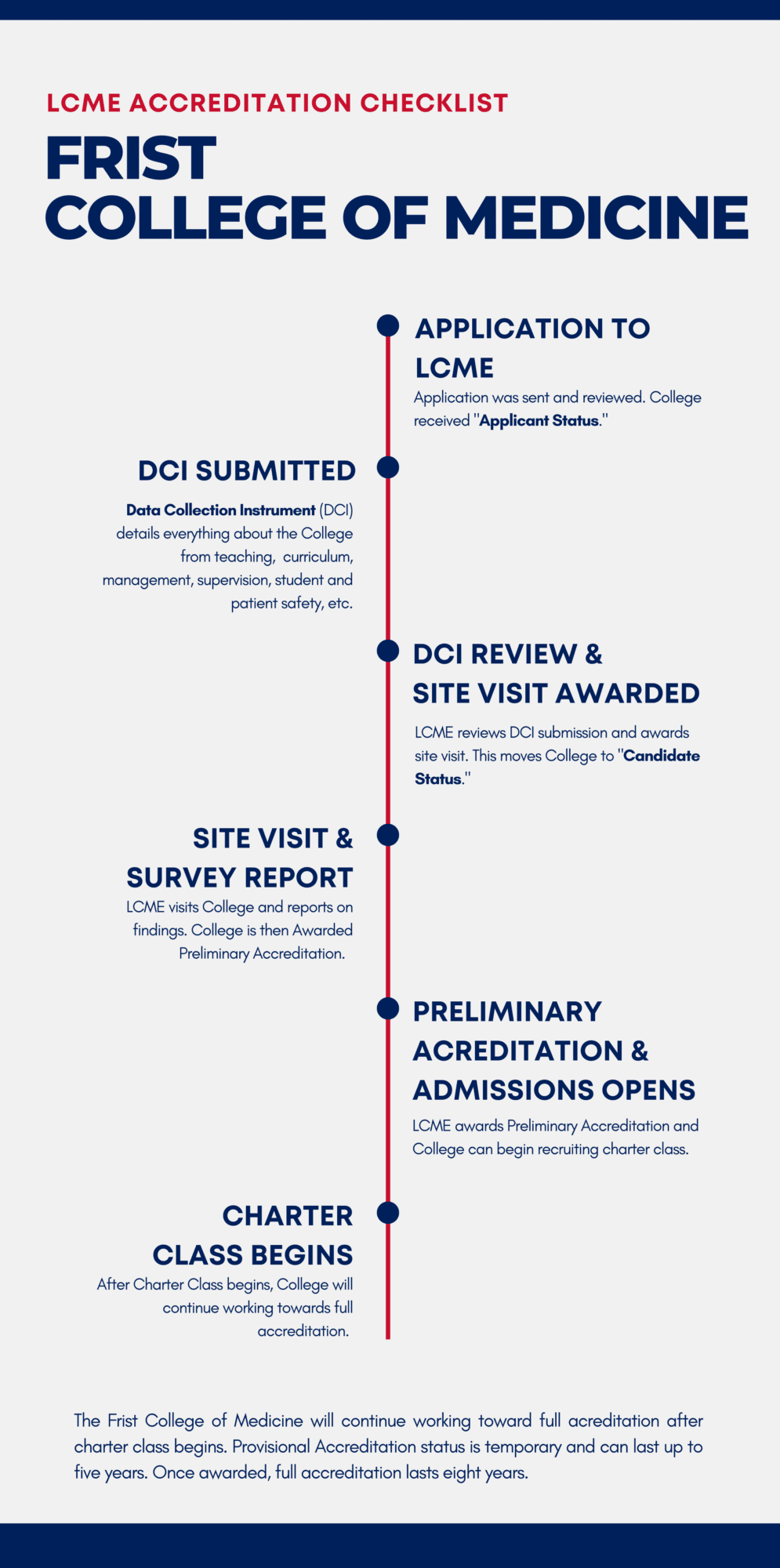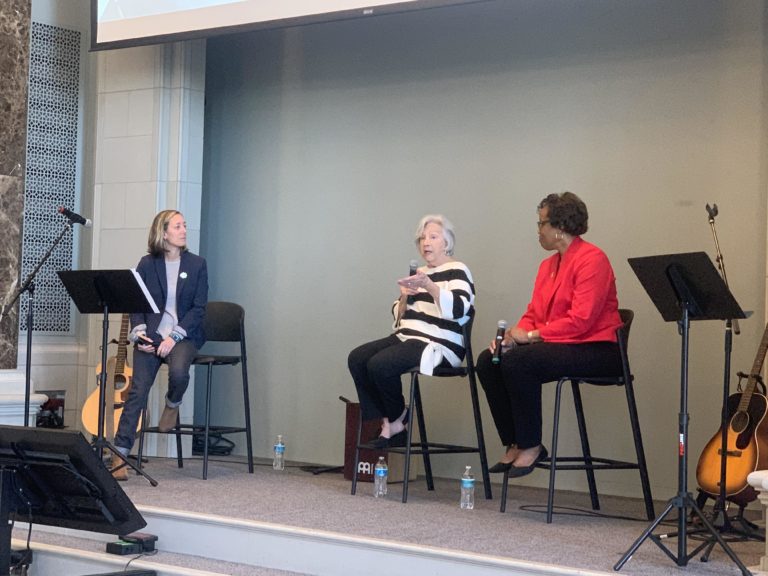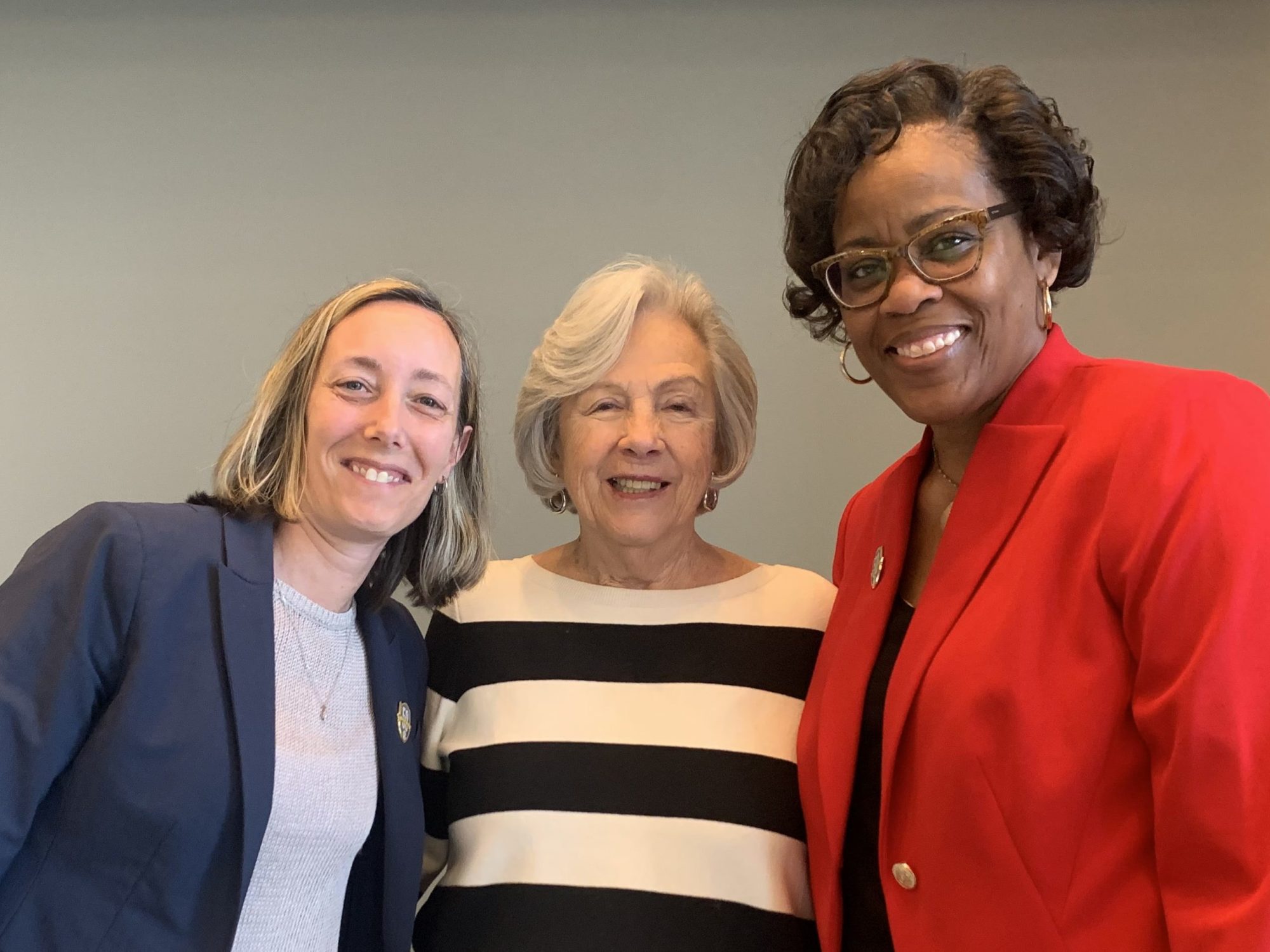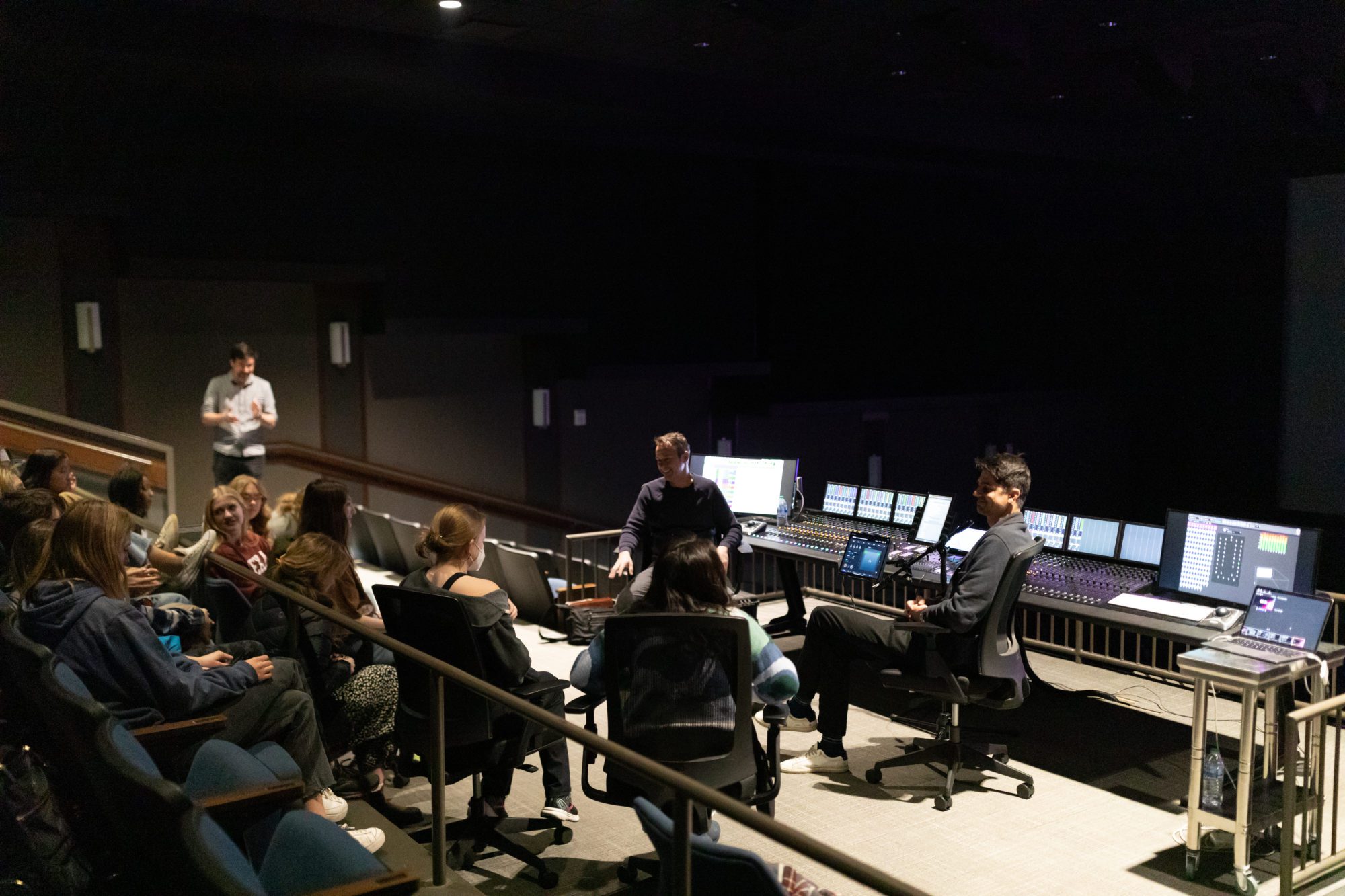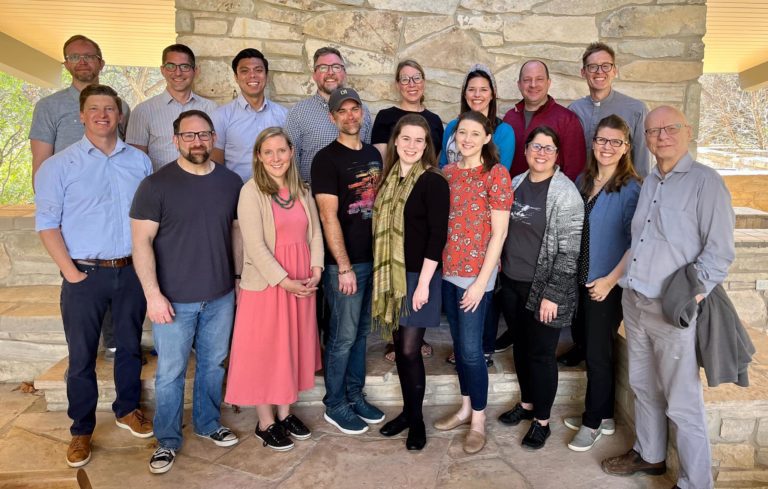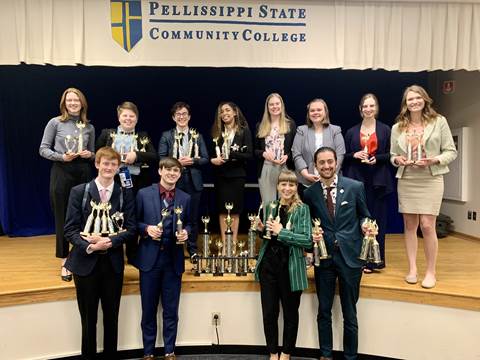When Associate Professor of Finance Dr. John Gonas reflects on his work with The Branch of Nashville, a community resource nonprofit that offers emergency food, ESL classes and other services, he remembers a recent experience with a man who came to the United States as a refugee from Afghanistan. As part of the programming, The Branch wanted to load the man’s car with fresh vegetables, pantry staples and breads, but he initially seemed wary of the generosity. He wanted to reciprocate with a gift of tea in his new apartment.
“He keeps looking at us like there’s gotta be something I owe you. I’m like no you don’t owe us anything,” Gonas recalled. “We went over [to his home] and took our kids and said hi. He was insistent we have tea or a meal.”
Gonas is a board member with The Branch, but his more recent involvement with the organization is through the new BASIC Initiative, which stands for Belmont Accelerator for Social Innovation Collaboration. President Dr. Greg Jones launched BASIC during his first week on campus to encourage and empower faculty and staff across Belmont to use their intellectual capital and faithful commitment for the betterment of the local community and region. “For us to be a catalyst for hope in Middle Tennessee, we need to be frontrunners in the quest for innovative solutions to what are commonly called ‘wicked problems,’ issues that are so pervasive and complex that they require intensive collaboration and experimentation across a variety of sectors,” Dr. Jones wrote in an initial announcement.
These complex problems such as intergenerational poverty or lack of educational opportunity to health care inequities and drug abuse require interdisciplinary thinking and diverse perspectives. Projects in BASIC will therefore involve at least two to three disciplines across colleges.
The first two projects in the initiative – working with The Branch in Antioch as well as with partners in the Edgehill Village community – were chosen from a pool of proposals and have been funded with three-year grants for $40,000. Additional projects will be added as the initiative continues. So how have the current projects progressed thus far?
Gonas says The Branch team dedicated the first semester to serving.
“I said, ‘hey everybody go move food. Get in there. Serve,’” he said. He wanted the participating parties across campus to understand how The Branch currently works to get to know the folks on the ground. As an example, Assistant Professor of Nursing Dr. Sara Camp brought her nursing students in to help with screenings and health fairs.
Then in December, the group gathered with Branch employees to talk about what they learned and determine how they could help further. “We’re not trying to impart Belmont on you,” Gonas recalled saying. “We have no fix. We’re an institution, we want to serve you. How do we bring our faculty, staff and students to you to strategically to help you?”
Branch Executive Director Melissa Thomas has long wanted a survey to better understand the needs of the community. While she was providing services to about 1,400 people previously, she’s now seeing about 5,000 people. Additionally, about 500 new community members from Afghanistan are in need of services such as SNAP, healthcare and housing. Additional groups from across Belmont including finance, honors and occupational therapy have joined forces to implement surveys across three areas of The Branch’s business – those receiving food assistance, elders and new neighbors from Afghanistan.
Then following Spring Break, the group plans to convene again with Branch employees to determine a strategic plan for the next two years. It will likely include the Branch’s new initiative Fresh Solutions, which The Branch has already started piloting, aiming to provide a more holistic approach beyond food assistance and ESL as “careworkers” to the community. It includes additional social enterprise or workforce development.
While starting Fresh Solutions alongside the surveys is difficult and a necessary pivot given the sudden influx of refugees in the community, Gonas says the real-world challenges that happen in helping a nonprofit can be important for students to work through. It also highlights the importance of committing to the work over a longer haul rather than trying to jump in for quick fixes.
“I like sometimes when it’s messy like this,” he said. “I like the students to see this, because they live in this bubble and think, ‘oh I can just go insert myself every once in a while.’ But when you go and commit to a family or commit to a class, you get to see the challenges and how difficult this is. I think that’s where the kids are changed.”
Meanwhile, Social Work Professor Dr. Sabrina Sullenberger, Dr. Mona Ivey-Soto in Education, and Director of Community Relations Joyce Searcy have been part of the BASIC initiative team, focused on collaborations in the Edgehill community near Belmont campus. They have been collaborating with Organized Neighbors of Edgehill, Elmington Elevates (Carter Lawrence Elementary School’s Extended Learning Program), the United Way Edgehill Family Resource Center, Salama Urban Ministries and The Store, among others, to pilot an extended learning and family support initiative. Activities and collaborations have included creative arts and wellness enrichment opportunities as well as times for family engagement.
“The most important thing we’ve been doing is spending time building relationships and listening and thinking primarily about collaboration. We had some ideas of things we might do, but it’s more important to listen and collaborate,” Sullenberger said. “What does it look like to really listen and build relationships and for the longer term.”
As students have helped with community engagement sessions or with book drives to bolster culturally relevant reading, the learning has been happening for all involved. “It’s one thing for students to learn what gentrification is in a classroom,” Sullenberger said as an example, “and another to learn while working alongside families who have been affected by it.”
Two additional BASIC projects were approved earlier this Spring, and announcements regarding approved grant proposals for the fall are expected in the next few weeks.


